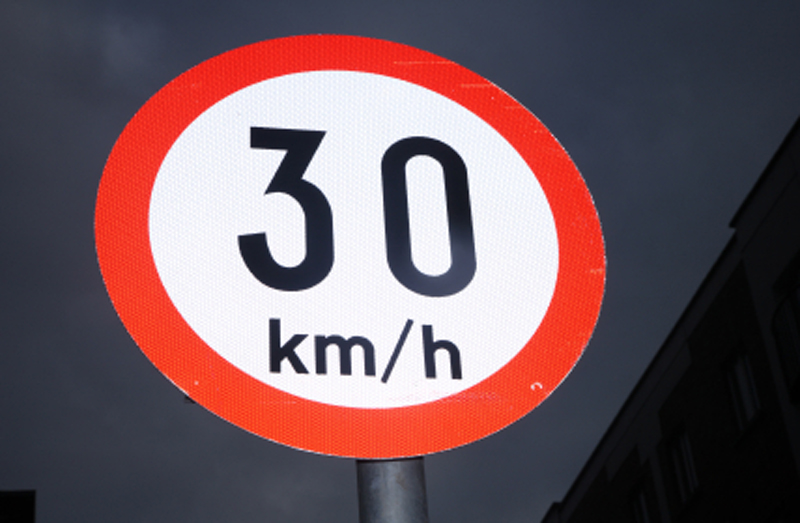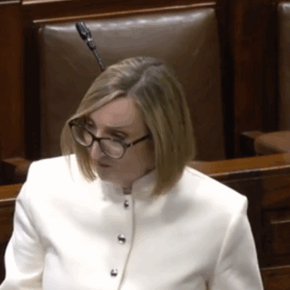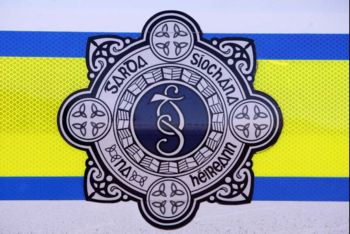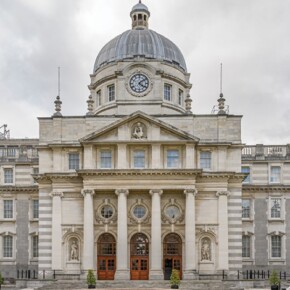Changes to Fingal speed limit on road to nowhere
Mike Finnerty 11 Jun 2025
Planned changes to speed limits across Fingal have hit a road block – and councillors are seeking answers.
At a Thursday (June 5) meeting of the Howth/Malahide Area Committee, local councillors heard how planned changes to speed limits across Fingal, and indeed, the rest of the country, are stuck behind a red light.
In February, the speeds on local rural roads were reduced from 80km/h to 60km/h, but no road signs documenting the new changes have been installed in the Howth/Malahide area (indeed, just 133 new road signs were installed across all of Fingal, the majority in the Blanchardstown and Swords areas).
James Culhane, an engineer with Fingal County Council told councillors last September “if the signage isn’t up by November, the guards won’t be able to prosecute,” and said that further guidance was needed from the Department of Transport.
Comments from Culhane at the meeting implied that the Department has failed to engage with Fingal County Council in any meaningful way about the proposed limits.
Last September, councillors were told that supply chain issues were likely to delay the rollout of updated signage across Fingal as the process will also be taking place nationally, with the meeting hearing that a “lag” is possible between the implementation of the new law and the signs being installed, a “lag” which has now come to pass.
Phase two of the plan, which would reduce speeds in urban areas and national secondary roads from 50km/h to 30km/h, was set to be implemented on June 30, but that target will not be met and has been deferred to a later, unknown date.
The plan is still in the workshop and developmental phase, despite the plans being announced late last year and the new government being installed in late January.
The Department of Transport, now headed up by local TD Darragh O’Brien, is yet to publish advice to give official advice to the local authority, despite the plan to reduce speed limits being announced in September 2023 by the previous government.
Part of the plan involves reducing speed limits around school or built-up areas, but councillors were told they have received no communication from the Department of Transport on the issue.
It is estimated that the countywide review into speed limits will only take place in the latter half of 2026.
Fianna Fáil councillor Eoghan O’Brien said “we’ve got far too many areas not just in Fingal, but right across the country, where speed limits are out of step with what they should be.”
O’Brien noted that the countywide review into speed limits usually happens within the first six months of a new council term; it has now been a year since the new Fingal County Council administration was formed, and now councillors have been told the review will not happen for at least another year.
The Howth-Malahide councillor said that a full council meeting should take place when the speed limits are up for review.
“From previous experiences, there will be certain changes that come in or that are recommended and they need to be backed up by a council vote,” he noted.
“In Howth and Malahide there are certain areas where the speed limits need to be lowered,” he told the meeting.
Independent councillor Jimmy Guerin said, “I’d like to see these changes enacted, and a lot quicker.”
“If any of you use the Port Tunnel, there are very few cars that speed in there because the time of entry and time of exit is timed. If you’ve exceeded the limit, that shows up, and you automatically receive a fine; there are a number of roads within Fingal where people speed,”
Guerin said that if a similar system were to be implemented on Fingal roads (noting that the technology used in the Port Tunnel wasn’t that expensive), it would be a more immediate way of addressing the speeding issue.
“Along with the signage and changing the limits, we should look at additional measures so people will be aware there is a price to be paid if they are caught speeding.”
Green councillor David Healy said there was “confusion” among councillors about the proposed changes; he said he was under the impression that the law was implemented earlier this year, and questioned if the law itself was legally enforceable as proper signage hadn’t been installed.
Healy further raised the question that the Department has yet to clarify what constitutes an urban versus a rural area, and there could be some discrepancies in the public consultation process.
Social Democrats councillor Joan Hopkins said she was “frustrated” that the changes weren’t going to be implemented sooner.
“In 2024, 174 people lost their lives in Ireland, and year to date, 57 people have lost their lives on the roads. We talk about speed issues regularly on this council; if you’re hit at 30km/h, there’s a 10% chance of death, compared to a 95% chance a death if you’re hit at 60km/h.”
“We know that speed kills, and we really need to do something about this,” and backed Guerin’s idea to fine speeding motorists.
Labour councillor and Mayor Brian McDonagh said “in our villages, we have cars going at 40 or 50km/h through villages and it confines to the paths and we don’t have shared spaces in places where we should have shared spaces. It’s not about cars, it’s about people.”
“Paradoxially, studies show that speeder limits don’t always impact on journey times, you just spend less time waiting at certain junctions, but we also want to try and encourage people to use shorter trips by other means.”
In response to Guerin’s suggestions to use cameras to catch and fine speeding motorists, Culhane noted that Dublin City Council are trailing a red light camera scheme to catch out people who break the speed limit, and pending the outcome of that trial, it could possibly be implemented on Fingal County Council roads.
Culhane noted that the 2001 Local Government Act is causing some ambiguity and confusion at a government department level about what constitutes an urban versus a local area, which is causing the delay in the implementation.











